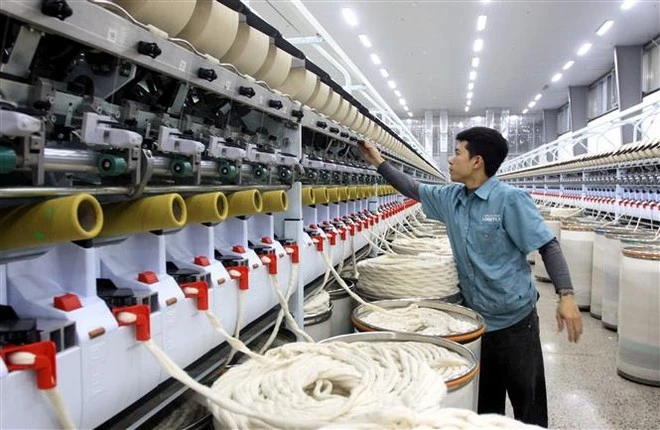FDI fuels Vietnam’s momentum to reach double-digit economic growth
According to the General Statistics Office (GSO), Vietnam secured 38.23 billion USD in FDI last year, positioning itself among the top 15 developing countries for FDI inflows. Notably, the disbursement of FDI capital hit a record high of 25.35 billion USD, up 9.4% from the previous year. The influx has contributed significantly to Vietnam's position as a regional leader in economic growth.


Improvements for enhanced attractiveness
Experts proposed several ways to enhance FDI's impact on Vietnam's economic growth, laying stress on the significance of maintaining preferential policies to lure the capital and making them more transparent, attractive, and competitive. They held that FDI policies should be selective, with priority given to quality, efficiency, technology, and environmental protection. Furthermore, administrative reforms should enhance support for the FDI sector while management should be tightened with proactive post-inspection measures, creating conditions for investors to shorten preparation and implementation time of projects.
They also suggested that Vietnam should prioritise projects featuring advanced and clean technologies, modern governance, high added value, spillover effects, and global connectivity between production and supply chains. Additionally, the country should continue negotiating and signing free trade agreements to create a favourable environment for foreign trade, thereby attracting FDI to launch production for export in Vietnam.
Vietnam is gradually shifting towards enhancing FDI quality by focusing on selective, proactive attraction of high-tech, environmentally friendly projects in spearhead sectors. Notably, in recent years, Vietnam has identified semiconductors and AI as two strategic industries to drive national development.
Deputy Director of the National Innovation Centre (NIC) Vo Xuan Hoai said that Vietnam has proactively developed a domestic semiconductor ecosystem and created a favourable legal corridor to welcome global enterprises.
He said Vietnam has made impressive progress in semiconductor cooperation with the US, the Republic of Korea (RoK), Japan, Taiwan (China), and Europe. Last year, the NIC announced its partnership with NVIDIA, a major chip and AI corporation, to set up an AI R&D Centre and an AI Data Centre.
The Vietnamese Government is planning to train some 50,000 semiconductor engineers by 2030 to meet the increasing demand of this strategic sector.
To enhance the capacity for genuine and effective evaluation and control of the FDI sector's contribution to the economy, the Prime Minister recently issued a decision establishing criteria for evaluating the effectiveness of foreign investment in Vietnam. Notable among these are 29 economic indicators measuring important factors such as budget contributions, profit before tax, profit margins, and linkages between FDI enterprises and domestic companies.
In another move, the Government issued a decree on the establishment, management, and use of the Investment Support Fund, affirming its commitment to to promoting high-tech enterprises, particularly in semiconductors and AI. This initiative not only serves as an important driver for enhancing competitiveness but also helps Vietnam integrate more deeply into the international market.
Director General of the RoK-based Hana Micron, Inc. Lee Dong-Chul said that Vietnam has become an attractive destination for high-tech enterprises on the back of the Government’s strong support, sound infrastructure, and high-quality human resources at rational costs./.








